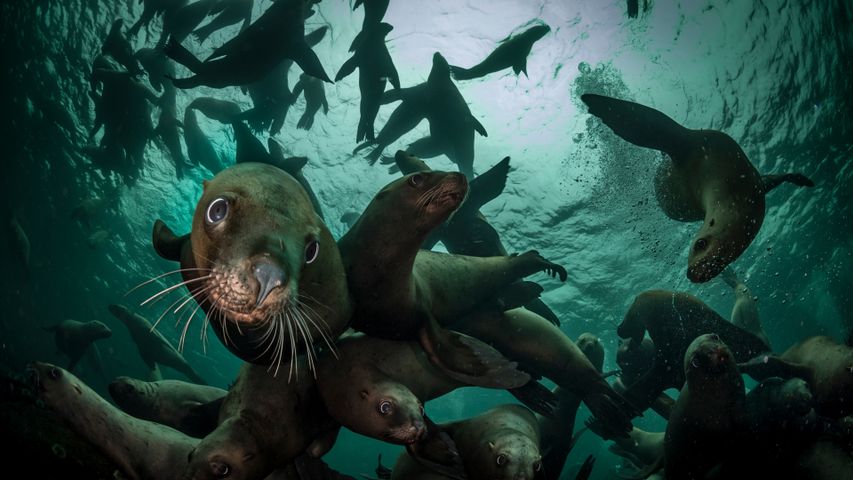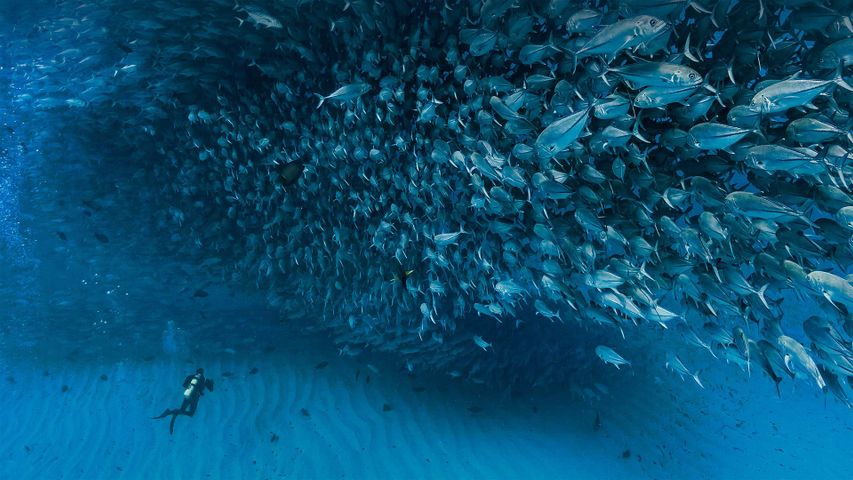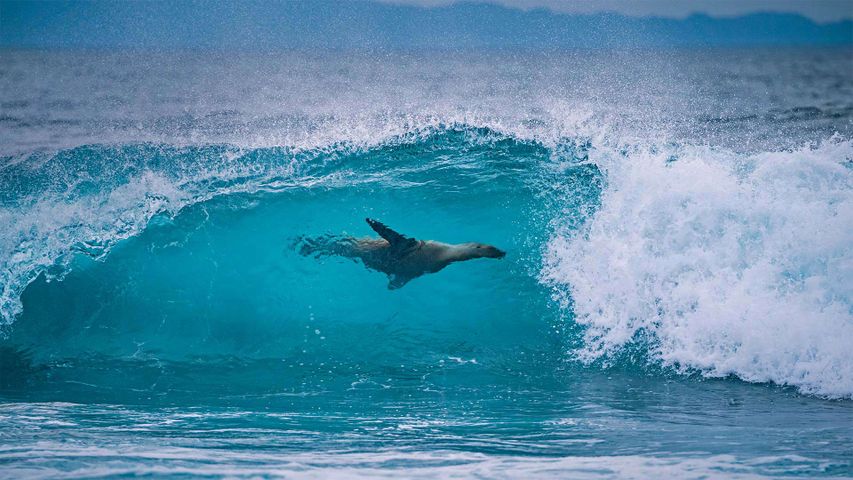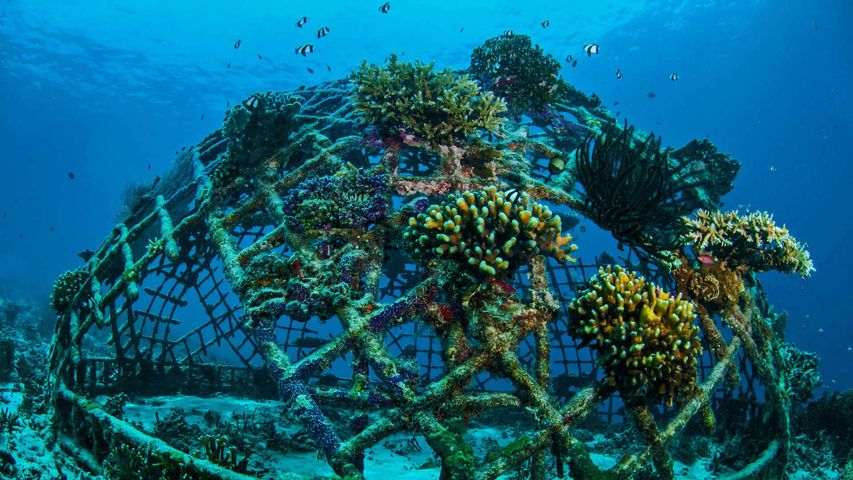Long-beaked common dolphin pod and diving Cape gannets hunting Pacific sardines off the Eastern Cape, South Africa
© Pete Oxford/Minden Picture
The buffet is open. World Oceans Day
On World Oceans Day, you’re invited to dinner below the sea, hosted by these long-beaked common dolphins. This pod, off the Eastern Cape in South Africa, is employing an ingenious hunting technique, herding a school of frantic Pacific sardines toward the surface of the water so they have no escape, essentially driving them against a wall. Once pinned near the surface, the sardines are easy pickings for the hungry dolphins and any other lucky bystanders, like these dive-bombing gannets who are quick to pounce on the opportunity. The technique requires teamwork of course but that comes easy to dolphins, known for their intelligence and tight familial bonds.
World Oceans Day has been officially recognized by the U.N. since 2008, an effort to create awareness and understanding of the oceans and their vital role in supporting all life on the planet, not just marine life. The oceans are under pressure like never before from pollution and climate change. Many species are facing extinction as habitats around the world change, demonstrating the vast oceans are more fragile than we once thought.
Lest we ignore the bit players here, the smallest fish, like anchovies, herring, and these sardines, fill an essential role in the food chain. Mass feedings like this occur all over the oceans. Scientists even have a name for it: multi-species feeding associations. One massive shoal of small fish can feed many larger creatures, demonstrating how life in the sea is interconnected and how every organism has a part to play.
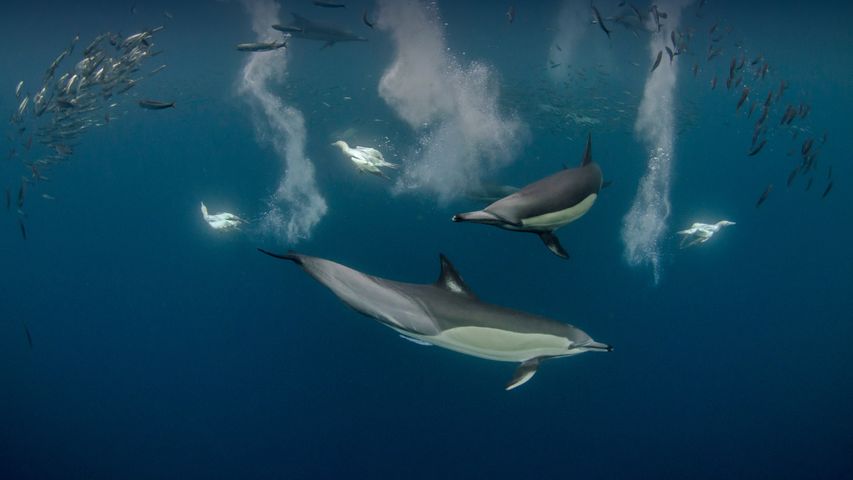
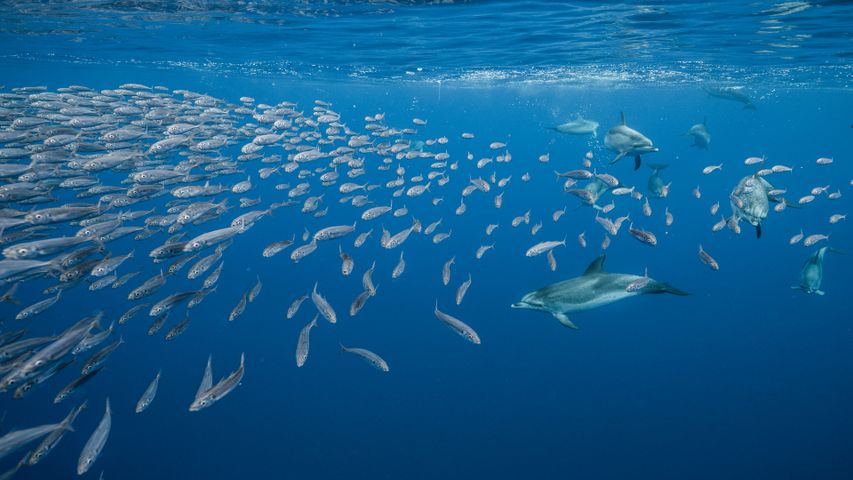 Atlantic spotted dolphins near Santa Maria Island, Azores, Portugal
Atlantic spotted dolphins near Santa Maria Island, Azores, Portugal
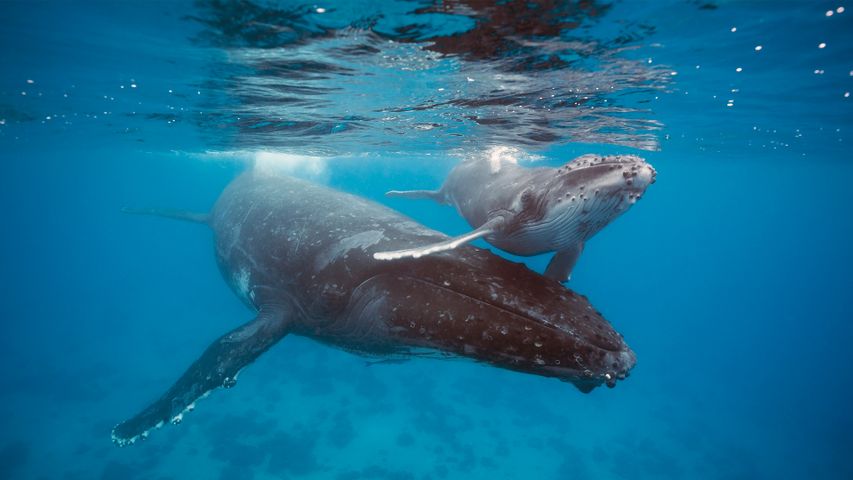 Humpback whale mother and calf, Tonga
Humpback whale mother and calf, Tonga
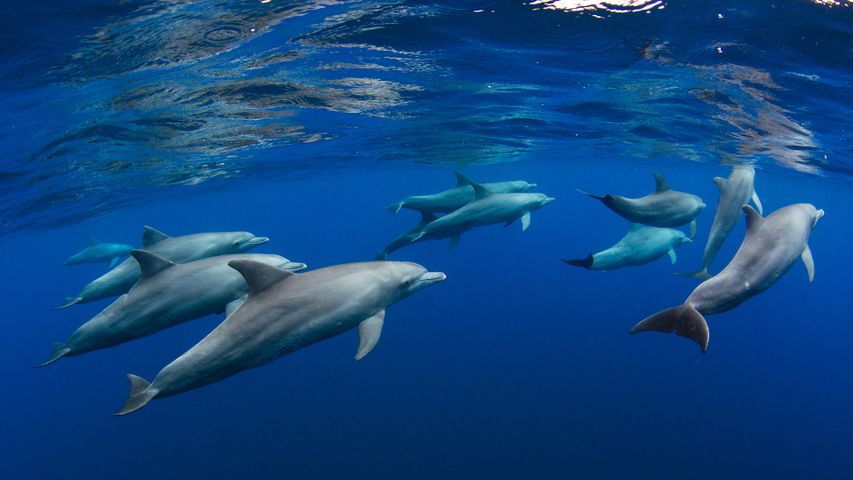 Dolphin pod near Réunion island, Indian Ocean, overseas department of France
Dolphin pod near Réunion island, Indian Ocean, overseas department of France
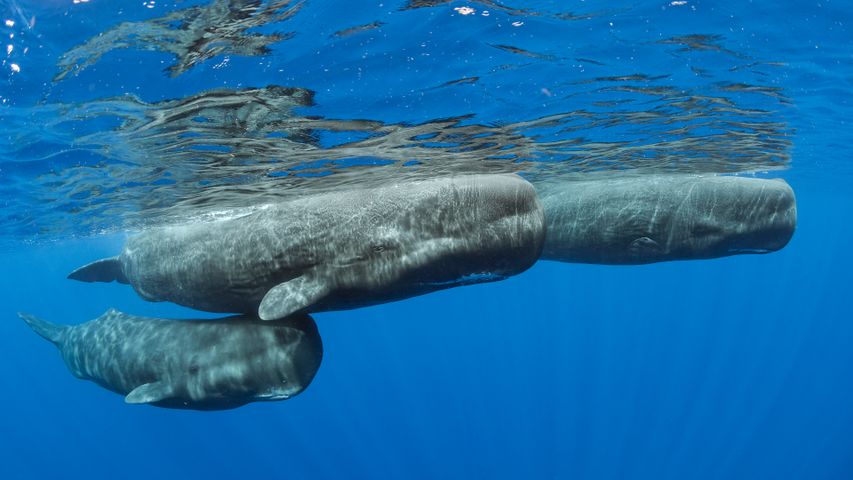 Sperm whale pod surfacing, Dominica
Sperm whale pod surfacing, Dominica
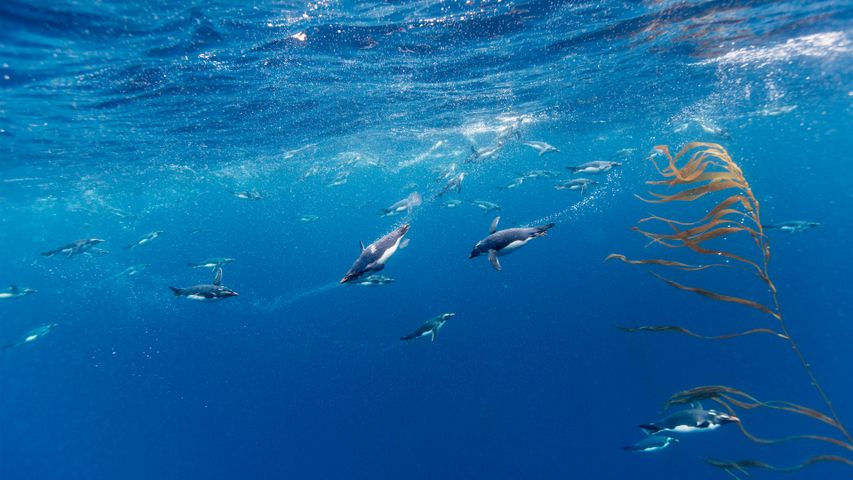 Macaroni penguins, Drake Passage, Chile
Macaroni penguins, Drake Passage, Chile
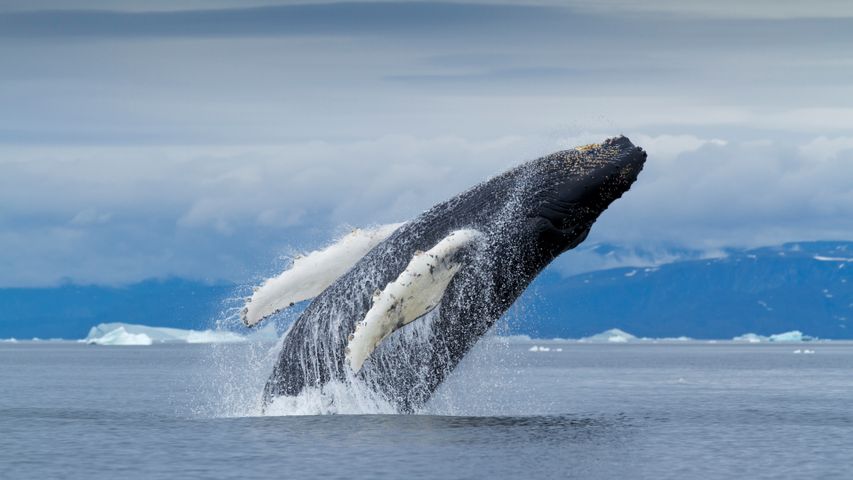 Humpback whale, Disko Bay, Greenland
Humpback whale, Disko Bay, Greenland
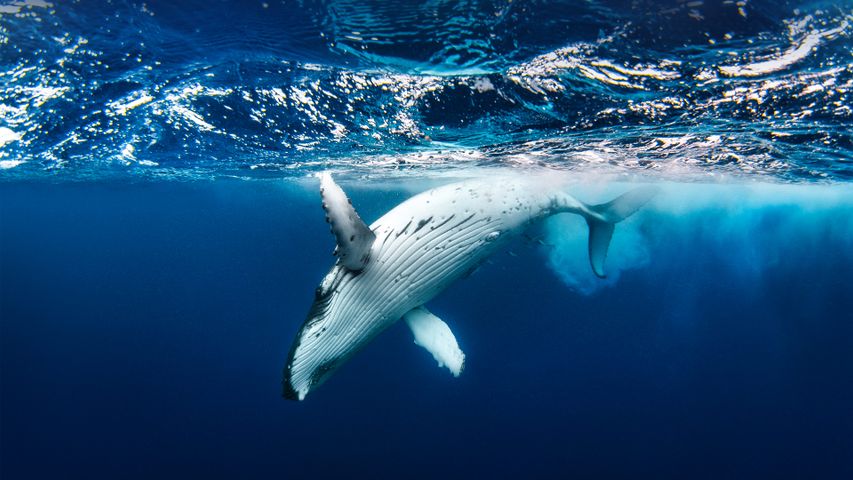 Humpback whale
Humpback whale
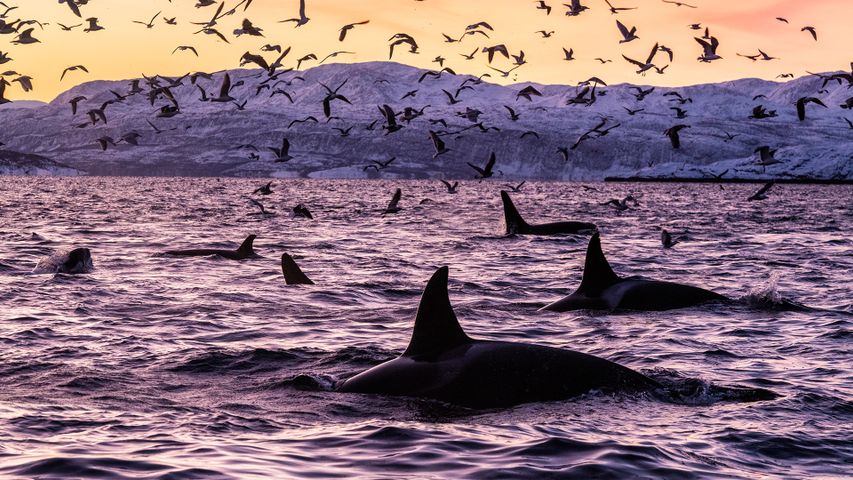 Killer whales in the waters off Spildra, Norway
Killer whales in the waters off Spildra, Norway
